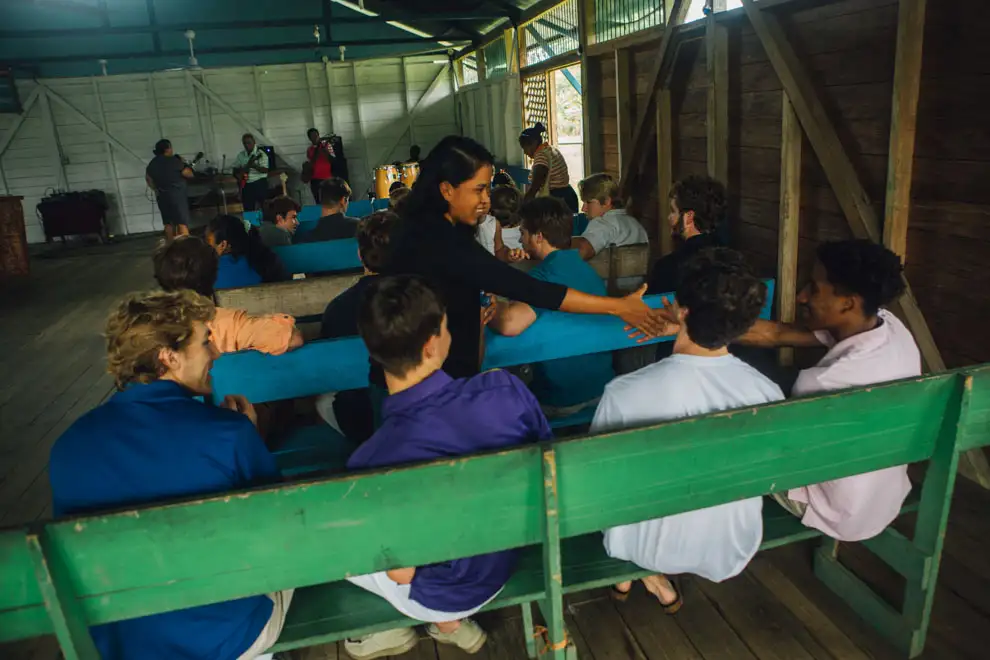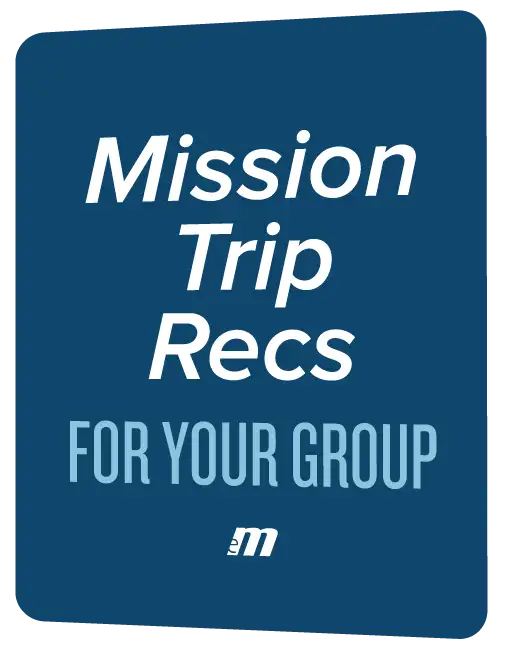
Illinois
Texas
North Carolina/Tennessee
North Carolina
Michigan
Arizona
New Mexico
New York
Kentucky
Maine
Texas
Georgia
Belize
Cuba
Jamaica
Puerto Rico (U.S.)
Costa Rica
South Africa
South Africa
Namibia
Indonesia















Middle School & Up
Summer
$995/person (8-Day Trip)
Community Overview
- Discover a new culture: Immerse yourself in the natural beauty and rural, indigenous culture Shiroles, Costa Rica.
- Serve with local leaders: Contribute to meaningful projects alongside Bribri people who are passionate about their community.
- Learn and grow: Practice your Spanish, connect with local children through Kids Club, and develop valuable cross-cultural skills.
- Make a difference: Join a mission trip and connect with often-overlooked people in a little-known corner of Central America.
Connect directly with EM Support Staff to learn more about 2026 Costa Rica mission trips — submit an interest form today!
Meet our Local Partners
Local Partners
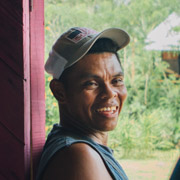
Details & Logistics
Activities & Opportunities
The Bribri and Cabecar tribes dwell primarily in the Talamanca Valley and surrounding mountains, which make up the region of Talamanca in southeastern Costa Rica. Their occupation of these lands dates back hundreds and perhaps even thousands of years. While they have been influenced by the modern world, they retain much of their historical culture and lifestyle. The indigenous people are very savvy, but because of ongoing poverty and economic challenge, they will truly be blessed by your service.
Your team will partner with local community leaders and practically serve the people around you by meeting tangible needs. You will build meaningful relationships, and if you come with a genuine heart to serve and connect with people, you will encourage those around you as you become a living picture of God's love.
Work Projects
Your team will assist with significant work projects which may be focused on serving an individual family or a community as a whole. Examples of potential projects would be building an addition or repairing a floor for a family's home or working on the facilities for a local school or church. You may be pounding nails, mixing cement, or even digging a hole. Whatever your specific task, you will have a significant role in touching the life of another person. Previous construction experience may be helpful, but none is required. It is most important that you come with a willing heart, and you are ready to serve to the best of your ability.
Children's Ministry
In this community, connecting with the local children through children's ministry is an important part of what we do each day. Teams coming to this community must expect to participate in Kids Club. Experience Mission will provide the curriculum for your team's use. This Kids Club curriculum will be sent out to Team Leaders in the spring via email. Your team may be asked to participate in multiple Kids Clubs and avenues of ministering to children.
Teams will be responsible to bring the craft supplies needed for their specific crafts and should budget appropriately. While we do our best to make sure the craft materials are cost-effective, teams may feel free to augment any materials to make them more suitable to their budget. Experience Mission will supply scissors, staplers, paper hole punches and rulers. There are plenty of opportunities to connect with the local children through games like soccer or Frisbee. Tuck in a hackysack, soccer ball, or jump rope as they are sure to come in handy.
* Experience Mission works closely with local leaders to identify work projects and ministry opportunities that address authentic needs within the community. We ask that you come with a servant's heart and willingness to adapt to the unique qualities represented in each location. Opportunities can vary significantly from one week to the next. Your team may work at one location or serve at multiple locations each day. Due to the changing needs of our community partners, we cannot confirm your specific activities until your team arrives.
Spring Break Trips
Due to staffing limitations and varying school schedules in our community locations, Kids Club and Evening Gathering are not offered during spring break trips. We do encourage teams to come prepared to spend some casual free time with the local children playing games, etc. And teams should plan to prepare their own worship and devotional materials for trips from February-May.
Community Profile
EM's Costa Rica mission trips are to the southeast region of Costa Rica called Talamanca. You will be working on the Bribri Reservation, which consists of many miles of some of the least developed areas in Costa Rica.
The main city on the Bribri Reservation is the city of Bribri. This is the first town that you will come to as you enter the reservation. Beyond the town of Bribri, there are only dirt roads, and they basically consist of a loop that runs through several small communities including Suretka and Shiroles. This area is the most developed portion of the Bribri land. As you go farther into the interior of the Reservation, there are many villages scattered throughout remote Talamanca mountain range that are only accessible by foot. While the actual population of the Bribri Reservation is unknown, it is estimated that there may be around 11,000 inhabitants.
Suretka is a main port on the Telire River, and it is the point of departure for many people traveling to the less developed areas. From here banana boats pass to and from the village of Coroma where they pick up bananas and plantains. There are also passenger boats that carry people upriver to visit Coroma and more remote villages. EM occasionally brings experienced and adventurous teams to villages such as Coroma and the even more remote Alto Coen.
History
The Bribri are indigenous to Costa Rica, and their traditional culture dates back hundreds of years. They were originally discovered by early Spanish explorers, but because of the rugged mountainous terrain where they reside, their culture has been preserved more than that of most tribes. It was not until the late 1800's that the Bribri began to have regular contact with Europeans, and the Bribri land was virtually inaccessible until the 1970s. Traditionally, the Bribri were governed by a hierarchy of chieftains, but this has gradually eroded with a growing European influence.
Today, the Bribri are very much their own distinct culture, but there is a great deal of outside influence. They are ultimately under the Costa Rican government, but they have their own president and governing council. Most Bribri desire access to modern healthcare and education but still value their traditional culture and way of life.
Natural Environment
The natural landscape is a mountainous jungle. The lush vegetation produces many tropical fruits, and the Bribri will also tell you that there are numerous medicinal herbs and plants. Temperatures are generally hot and humid and mosquitoes can be an issue. During the rainy season, which includes the summer months, torrential downpours are not uncommon. Local wildlife includes monkeys, anteaters, iguanas, geckos and various species of tropical birds. Throughout the jungles, it is believed that wild boars and occasionally jaguars still roam. Rivers and streams run all throughout the Bribri Reservation, and they are a primary means of transportation and survival.
Lifestyle
Most Bribri households are without electricity and running water. Many still live in traditional huts, but some also have European style concrete and board houses. It is often the case that large families live in very small areas. In the developed part of the Bribri Territory, some people do have electricity and modern technology such as radio, TV, and cell phones. The Bribri lands are very rural, and most people depend on farming to make a living.
In the interior, the Bribri live with little or no modern amenities. When EM staff and volunteers first visited the village of Alto Coen, they found that the villagers had not seen Americans for many years. Alto Coen is only accessible on foot, and a boat ride is the most common way to gain access to the trailhead. Men from the village occasionally travel back to more populated areas to get food and supplies, and they have obtained farm animals such as pigs and chickens, but for the most part, they live off the land. They can survive entirely from food that grows in the jungle, and they make their homes from trees and leaves. Beyond Alto Coen, there are villages that are even more remote.
Needs
The Bribri Reservation is the poorest section of Costa Rica with the lowest income per capita and limited access to education and healthcare. In the developed area, there are schools, and there is a medical clinic near the town of Bribri; however, there is a great need for improved facilities in both of these areas. Income is so low that people often barely can afford food and clothes and adequate shelter is difficult to maintain. Because of this, many families live in homes that are very small and dilapidated.
In the less populated jungle communities, there are very few schools and medical facilities. Where there are schools and clinics, they are minimal and are in need of improvement. Further, teachers and doctors are in short supply. Some of the rivers that run through the area are very treacherous, and in remote areas, there are not adequate bridges. Lives have been lost from people trying to cross the rivers by swimming or deep wading, and there have even been fatalities from inadequate bridges. In Alto Coen, the village is divided by the Coen River. When EM first began working in Alto Coen, we partnered with the Costa Rican government to create a 400-foot suspension bridge to help the community navigate this natural divide. There is a similar need for bridges in many other remote villages.
Language
The Bribri have their own indigenous language, and in villages such as Coroma and Alto Coen many people only speak Bribri. In the developed area, most people speak both Bribri and Spanish. As the Bribri have more contact with the outside world, Latin-American culture and the Spanish language are becoming more prominent. In fact, some of the Bribri children only speak Spanish. In recent years, the Bribri language has been written down, and there is now a Bribri translation of the Bible.
Religion
Many of the Bribri on the reservation would call themselves Christians, but there is also a great deal of adherence to ancient Bribri religion. In the more remote areas, there is definitely influence from Christianity, but most people do not seem to have a deep understanding of the gospel or any significant knowledge of the Bible. In these places, some form of the traditional religion is generally practiced.
The Bribri are very spiritual, and their god is named Sibú. They have a rich tradition of mythology, and this is used to explain various aspects of the natural world. As is common among indigenous tribes, the Bribri have a great deal of respect and awe of nature, and they tend to be animistic. The spiritual leaders of the traditional Bribri are medicine men or shamans, and they possess in-depth knowledge of the medicinal uses of natural plants and herbs.
For general information about Costa Rica, consult The CIA World Factbook.
Lodging, Food & Transportation
Lodging
Your team will be staying in Shiroles at a local church with dorms. There are beds but you will need to bring bedding & towels. It is generally warm at night; however, it is cool on occasion. Accommodations will be dormitory-style with male and female sections.
Showers & Bathrooms
There are bathrooms and showers.
Water
Purified water will be made available for your teams at all times.
Electricity
There is electricity at the facilities, but the electrical service is not as dependable as in the United States, so there are occasional outages.
Security
The rooms where team members sleep can be locked, and trustworthy locals will be keeping an eye on the building throughout the day.
Food
Our local partners have a team of women who will cook local meals. Each morning your team will also pack lunches for the worksite. Team members should plan to bring their own plate, bowl, cup, and silverware for meals. Due to a limited variety of foods available in Costa Rica, EM cannot accommodate any nut or seafood allergies. Please inquire with an EM staff member for more details. EM's Food Policy
Air Travel
Destination Airport: San Jose Juan Santamaria International Airport, Costa Rica (SJO)
Team members are responsible for covering the cost of their round trip airfare to the San Jose airport and should make plans to arrive before 6:00pm on the first day of your selected trip. Return travel can be arranged with your flight departing any time on the last day of the selected trip.
Passports & Travel Documents
Passports - Each team member must carry a valid passport. If you have further questions regarding required travel documents we advise you to contact the US State Department - www.travel.state.gov
If you do not have a valid passport, it is of the utmost importance that you apply as soon as possible. The processing time for a Passport can take several weeks once your application has been submitted. An expired Passport is not considered valid.
Other Required Travel Documents - All team members under the age of 18 must carry a written, notarized letter from their parents giving them parental permission to leave the country. They must carry the original notarized copy of this letter. It cannot be a photocopy of the letter.
1) If the minor is traveling without parents, both parents must sign the letter.
2) If they are traveling with one parent, the parent that is not traveling with them must sign this letter.
3) If their parents are separated or divorced and both parents do not want to sign the same letter, they must have a notarized letter from each parent permitting them to go.
Experience Mission can provide a sample copy of a permission letter or you can create your own letter that must include the following:
1) The full name of both parents and their formal signatures
2) The full name of the child
3) The full name of the Adult Chaperone serving as the Team Leader
4) The specific traveling dates for each country
5) The destination country
6) The reason for travel to the destination country (example - "youth group function")
7) The Airline itinerary (if applicable)
Ground Transportation
Upon arrival to San Jose, Costa Rica, all ground transportation IS included. Transportation to and from San Jose will be by chartered bus.
Typical Schedule
Typical Schedule
Below is a basic schedule for the week, but we approach this with flexibility because our ultimate focus is on relationships.
Each morning, there is time set aside for devotions and quiet time. Experience Mission has devotionals/journals that are available for purchase or teams can supply their own. This is a valuable time and we strongly encourage everyone to spend it with God journaling their thoughts and experiences as the days unfold.
We set aside time each evening for debriefing, worship & devotions. Sometimes our staff is able to help lead this however your team may need to lead this. We can provide content for you if this is the case. Our programming does not include musical worship as we can't guarantee that our staff will have this ability. Please let us know if you have anyone who sings or plays guitar on your trip so that we can help to coordinate the musical aspect of worship when able. If teams aren't able to help in the area of music, it may not be a part of the trip.
Saturday
Teams arrive and stay the night at a local hostel. We recommend arriving before 6pm.
Sunday
Drive to the community of Shiroles, settle in, and get to know the community. It is a 6-hour drive, so be sure to bring a book or plan some games for your group on this drive!
Monday-Thursday [Ministry Days]
Morning - Early Afternoon - Work Projects
Late Afternoon - Kids Club
Friday
Drive to a local beach and spend a few hours there before heading to San Jose. Friday night stay at a local hostel.
Saturday
Fly out from San Jose.
NOTE: All meals, lodging, and transportation costs for the above itinerary are included in the cost of your trip!
Extended Trips
Teams may opt to add an extra day or two to their trip. EM can help arrange the logistics for these additional days but you may not be accompanied by an EM staff member. If your team adds extra days all expenses incurred will be your team's cost and you will need to bring cash/credit to pay for these in person. EM can provide you with estimated quotes but know that your team is responsible for the costs should they be higher than the estimated quote.
Should you add additional days please be sure to talk with your Servicing representative to make sure your personalized logistics are handled.
Health & Safety
EM's Health & Safety Plan:
Staff Certification
All Summer Staff are certified in First Aid and CPR.
Medical Kits
Medical kits that include first-aid supplies for general accidents and ailments are provided for each site.
Emergency response plan: Based on the severity of each emergency, EM has a plan for appropriate response.
- If a team member becomes seriously ill, they will be taken to a local doctor to receive appropriate medical attention and medications. If they are a minor, their Team Leader along with our staff will accompany them to the clinic. If needed, their parents will be contacted. Their recovery will be carefully monitored by our staff.
- If there is an accident that requires a doctor, but is not life-threatening and does not have the potential to cause permanent damage, Experience Mission staff will locate the Team Leader, contact parents or guardians (providing the injured is a minor), and provide safe but quick transportation to a local clinic.
- In the event that an accident occurs which is life-threatening or has the potential for permanent damage, emergency medical care will be secured and arraignments will be made if necessary, to transport the injured person to the United States as quickly as possible providing they are serving in one of our International locations. In our domestic locations, local 911 services will be contacted immediately. The family will be contacted immediately to assist in guidance for an appropriate response.
All medical care is the sole responsibility of the team member. Experience Mission requires every team member to be covered by domestic medical insurance and recommends that team members traveling abroad carry additional international travel insurance to cover any medical needs their domestic medical insurance may not cover.
Immunizations: As with all mission trips, it is essential that volunteers are up to date on all childhood immunizations. Each volunteer must also have a tetanus shot.
For more information about health concerns and recommended immunizations, you can visit the CDC travelers guide to Costa Rica. You should consult your local doctor prior to receiving any immunizations.
Check out EM's current Covid Guidance
Registration & Payment
Experience Mission has specific policies regarding team registration and withdrawal. Please refer to the document below for specifics.
View EM’s Mission Trip Registration Policy
INDIVIDUALS
All volunteers on a week-long EM mission trip to Costa Rica must be part of a team of at least 10 people, with at least one team member age 21 or older to serve as the Team Leader. Not part of a group? All young adults ages 18-30 are eligible to apply for EM's IMMERSION program.
Costa Rica Trip FAQs
How much do Costa Rica mission trips cost?
See "Upcoming Trip Dates" section below for available dates and per-person cost for each trip. This fee covers ground transportation, lodging, all of your meals, trip-related expenses, and funds to support staff who will be leading your trip.
What will we be doing on our mission trip?
Mission trips in Costa Rica typically consist of a mixture of highly physical construction projects and Kids Club. Be sure to check the details for your specific trip because individual trips may vary. (See "Activities & Opportunities" for more details.)
What seasons does EM offer Costa Rica mission trips?
Trips are currently available Costa Rica during the summer months. Find the "Upcoming Trip Dates" section for future trips with availability for your group. (NOTE: EM does not offer spring break mission trips to Costa Rica at this time.)
Will we work with children in Costa Rica?
Most likely! Past mission trips to Costa Rica have included the opportunity to lead a Kids Club for local children. If this is an important part of the trip for your group, please ask about it on your interest form to learn more!
What paperwork is required for this mission trip?
Each team member will need to fill out a team member registration form and liability waiver and all adults are required to pass a background check. Additionally, each team member will need to have a valid passport that expires at least six months after traveling to Costa Rica.
Will we need a visa for a Costa Rica mission trip?
You do not need to apply for a visa ahead of time. You will need to go through customs upon arrival and provide information about the nature of the trip. We will provide you with all the resources you need for this prior to your departure.
Where will our group stay in Costa Rica?
Teams will be staying at a local hotel in the small town of Cahuita, which is 40 minutes away from Shiroles by bus. You can expect your lodging facility to have electricity, running water, and working bathrooms and showers available each day.
Are meals provided for Costa Rica mission trips?
Yes! Breakfast and dinner will be prepared by local Costa Rican restaurants. This is a unique opportunity to try local Costa Rican cuisine. Lunches will be standard sack lunches that are packed by your team at the beginning of each day.
Is airfare included in EM trip fees?
Airfare is a separate expense for each group, and it is your responsibility to book and manage your own air travel to Costa Rica.
When should we plan to arrive in Costa Rica?
We ask that teams arrive before 6pm on the first day of their selected trip. If you are unable to arrive in this window of time, please contact your mission trip support person prior to booking airfare so that we can ensure that you will have transportation available upon arrival.
How will we know where to go at the airport when we arrive? Who will meet our group in-country?
You will have access to specific instructions for how to go through customs and where to meet our staff at the airport once you register for your trip. We will also provide you with the phone number of our staff on the ground to call should you get lost. You can expect a call from this person the week of your trip to communicate any special details.
What local culture will we experience on our Costa Rica mission trip?
Teams will experience a slice of authentic Costa Rican culture and hospitality while serving in Talamanca. You will have the opportunity to meet and build relationships with a variety of people in the community, experience local cuisine prepared by local restaurants, and see the natural beauty of this tropical region every day.
How does this trip impact the local community?
All work projects are focused on community development and decisions about what the projects are undertaken are left almost entirely up to local leadership and partners. As a result, real community needs are being met and projects have a lasting impact. Your team also has the opportunity to connect relationally in this cross-cultural setting as a picture of God's love to all people you meet.
How does EM ensure the safety of team members traveling to Costa Rica?
Shiroles and Cahuita are extremely safe rural communities, and while EM has worked here for many years, we also recognize there are always risks when traveling abroad. In working closely with our local partners, we make certain our housing facilities are safe and looked after in the case that something unforeseen does happen.
Will there be clean water to drink?
Yes! Purified bottled drinking water will be provided for all team members at the lodging location and during the day at the worksites and ministry sites.
What shots and immunizations do we need to get before our mission trip?
In addition to being up-to-date on all childhood vaccinations and boosters, we strongly recommend all participants check with the Center for Disease Control (www.cdc.gov) as well as their local physician and closely follow their directions for recommended shots and immunizations. Click here for the CDC travel page for Costa Rica.
Will we need to purchase additional travel insurance on my mission trip?
EM strongly recommends that every team member has personal medical insurance. All volunteers should check with their personal medical insurance provider regarding international coverage. If your personal insurance will not cover you, we strongly recommend purchasing additional travel insurance. Short-term travel insurance can be purchased separately through a local insurance company.
If you cannot obtain travel insurance through a local provider, upon team registration, we will direct you to a link for "Travel Insurance" on our website. This link will connect you and your team members to "Group International Travel Solutions," a trusted travel insurance company.
Does EM have any Covid requirements for teams?
We ask that teams bring 1-2 masks/person and 2-4 rapid tests in the event that someone on your team becomes sick during the trip. Outside of that, we simply recommend that teams follow current CDC recommendations regarding travel, testing, and what to do if you're exposed or get sick. View EM's Current Covid Guidance
Does EM offer any other mission trips to Latin America or the Caribbean?
Yes! We offer trips to Cuba, Jamaica, Puerto Rico.
Have more questions about Experience Mission trips? Check out our general FAQs, or call our support team at 888-475-6414.
Upcoming Trip Dates: Shiroles, Costa Rica
We’d love to connect with you!
Dont hit a snag in your mission trip planning! Fill out an interest form or call (888) 475-6414 (Mon-Thu, 9am-5pm ET) to ask questions and learn more about upcoming EM mission trips.
Recent Blogs & Stories
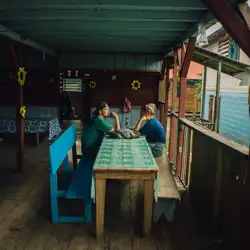
Hear from recent EM mission
trip team leaders!
Hear from recent EM mission trip team leaders!
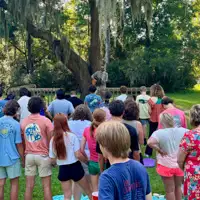
Carline D. served in Savannah, Georgia
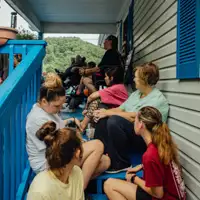
Nikki K. served in Pikeville, Kentucky
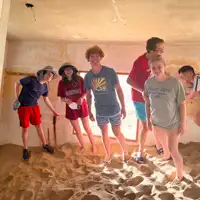
Christopher G. served in Rincon, Puerto Rico
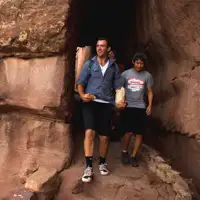
Jeremy M. served among the Navajo Nation in Arizona
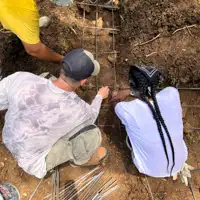
Jennifer S. served in Rincon, Puerto Rico
What’s the best trip for your group? Answer 5 multiple choice questions and get instant mission trip recommendations!
What’s the best trip for your group?
Answer 5 multiple choice questions, and get instant mission trip recommendations!
Make your Mission Trip a reality!

1
Fill out a Group Interest Form
Only takes a minute! Simply choose the community and trip dates you’re most interested in—no commitment necessary.
2
We’ll personally follow up with you this week
Answering your questions and walking you through the process of finding the best trip, registering your group, and preparing to serve together.
3
You and your team serve on a cross-cultural mission trip!
Organized and led by EM field staff or local partners, your trip will bring encouragement and light to people in difficult circumstances, as you learn what it means to care for all people, whoever and wherever you are.
Read our Mission Trip FAQ and Registration Policy. If you have additional questions or don't see the dates you're looking for, fill out an interest form for the trip closest to what you're hoping for and let us know the needs of your group.
Don't let fundraising slow you down!
Download the free EM Fundraising Guide for all our best tips and ideas for making fundraising for your next trip fun and easy.
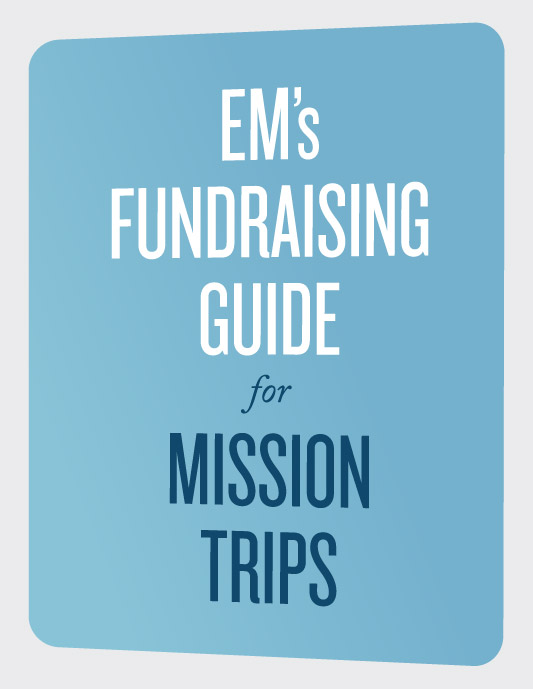

Don't let fundraising slow you down!
Download our free Fundraising Guide for all our best tips and ideas for making fundraising for your next trip fun and easy.
Site developed and hosted by Skycog, Inc.

